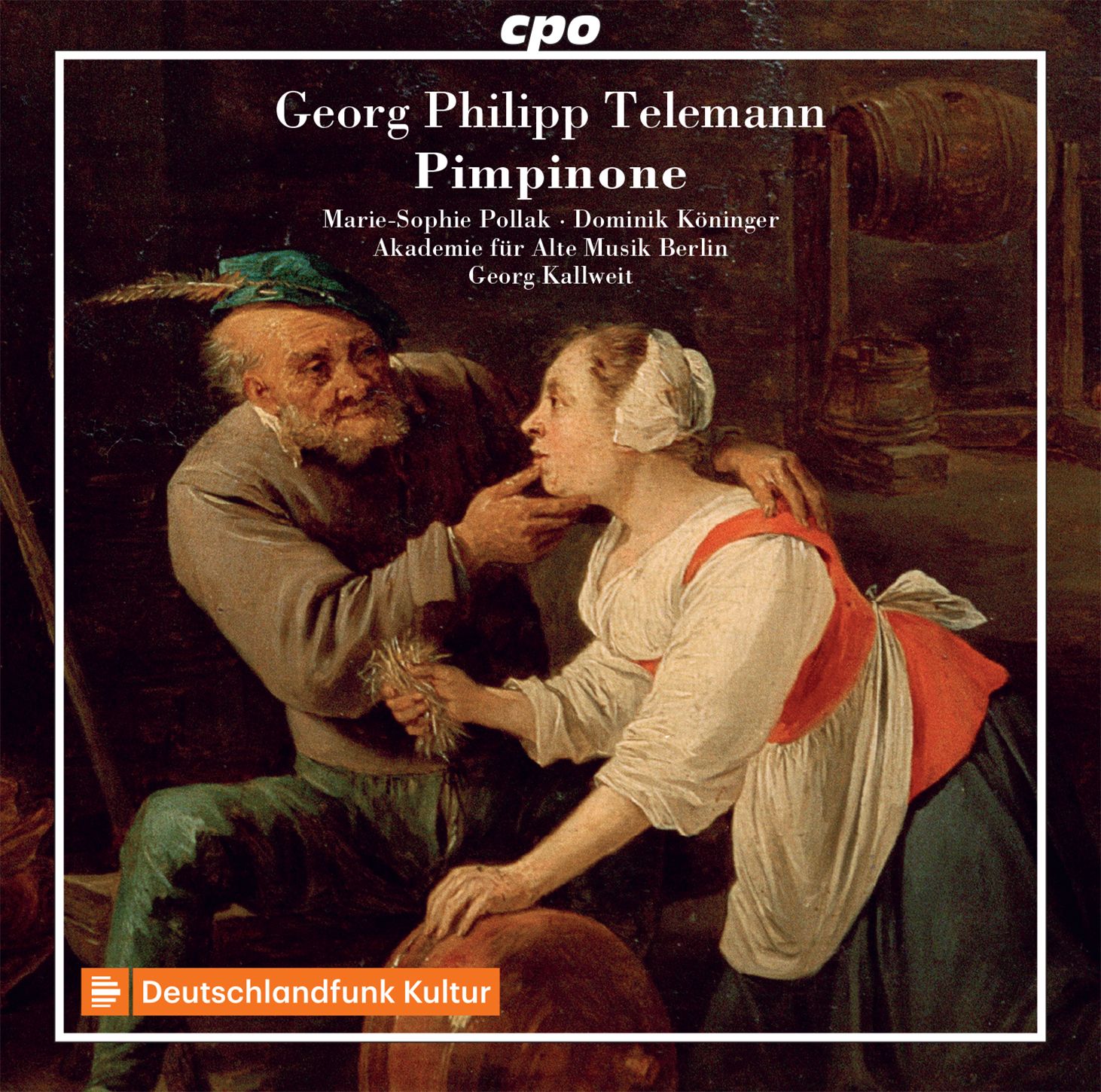A Telemann Intermezzo: Pimpinone
This is a disc that could easily slip between the cracks, but as pure Baroque entertainment goes, it takes some beating

The output of Georg Philipp Telemann is enormous; intimidatingly so. Here on Classical Explorer we’ve already seen various aspects of his output: orchestral Overture Suites, Cantatas for the Hanoverian Kings of England, a disc of cantatas and viol fantasias, Musikalisches Lob Gottes, a disc of Christmas Cantatas, and a disc of Wind Overtures in a post entitled Swans, Bells, and a River God.
Time, then, for an intermezzo a form that developed in the late 17th century as independent stage works: Pimpinone, TWV 21:15, which was premiered at the Gänsemarkt Opera in Hamburg on 27 September 1725 as an insert in George Frederic Handel’s opera seria Tamerlano. Pimpinone achieved an independent life of its own, though, finding popularity with the public; Telemann himself published it in 1728.
The piece is effectively a musical comment on then-contemporary professional and private spheres: here we meet the hard life of single women, the significance of wealth and social standing for eligibility for marriage, the injustices of patriarchal marriage law, and the ridicule directed at romantically inclined senior citizens. No wonder the piece is subtitled, “Die ungleiche Heirat” (The Unequal Marriage). As Vespetta, the female in this two-character piece, says:
I have chosen your despised marital bed to gain more freedom
I will do my duty as your spouse, but I am not chained as a slave
In 1708 Tommaso Albinoni became the first composer to set the libretto Pimpinone e Vespetta by Pietro Pariati; in 1725 Telemann and his librettist Johann Philipp Praetorius in Hamburg gave their reading. Italian arias were retained (which is why there is a mix of languages in Telemann’s piece), but some arias, duets, and the recitatives were given new texts.
Vespetta is an ex-chambermaid who is now married to the rich Pimpione; their changing dynamic is charted by Telemann with unfailing brilliance, and with his trademark sense of infinite ingenuity and inspiration. Try Pimpinone’s brilliant Part I aria, “Ella mi vuol confedere” (She wants to confuse me), despatched brilliantly by Dominik Köninger, whose diction (so vital in this aria) is impeccable:
.. and then there's the delight of the duets. Here's the one that ends the first part:
The parts of Pimpinone are separated, ingeniously (but appropriately), by a movement from a Concerto grosso by Charles Avison (after Domenico Scarlatti, Kk 29). It's Avison's Concerto grosso No. 6 in D, the “Con furia” movement:
(here's the Scarlatti original:)
I absolutely encourage you to listen to the above two tracks: Avison’s handling of his Scarlatti source material is truly brilliant.
One has to acknowledge the sheer beauty of Vespetta's aria, “Nei brivi momenti”:
The second part, unlike the first, contains two balancing arias of similar duration, one for Pimpione and one for Vespetta, both of around five minutes each. Dominik Köninger is the eloquent Pimpione in “Guarda, gurada un poco”:
Köinger and Maria Sophie Pollack’s light soprano (she would be a great Susanna, Despina and so on) are ideally matched, as one can hear from their dialogue (here, obviously, recitative), and in the Duetto that follows, full of imitation before the voices join joyously and playfully:
and here, in response, is Vespina’s cloud-light ’I non sono una di quelle”:
Moments of comedy are delicious in the piece. Köninger's use of different 'voices' is simply brilliant here:
The piece is, as always with Telemann, brilliantly constructed. Not a note is out of place, and it simply exhales joy. It is surely luxury to have the World-renowned Akademie für Alte Musik Berlin as the ensemble; Georg Kallweit, concertmaster of the Akademie, leads the performance brilliantly, with an unfailing sense of style.
You can hear the whole cpo performance here:
This is a disc that could easily slip between the cracks, but as pure Baroque entertainment goes, it takes some beating. Given that both performance and recording are pretty mcuh faultless, this is one to treasure.
Teleman Pimpinone (cpo)